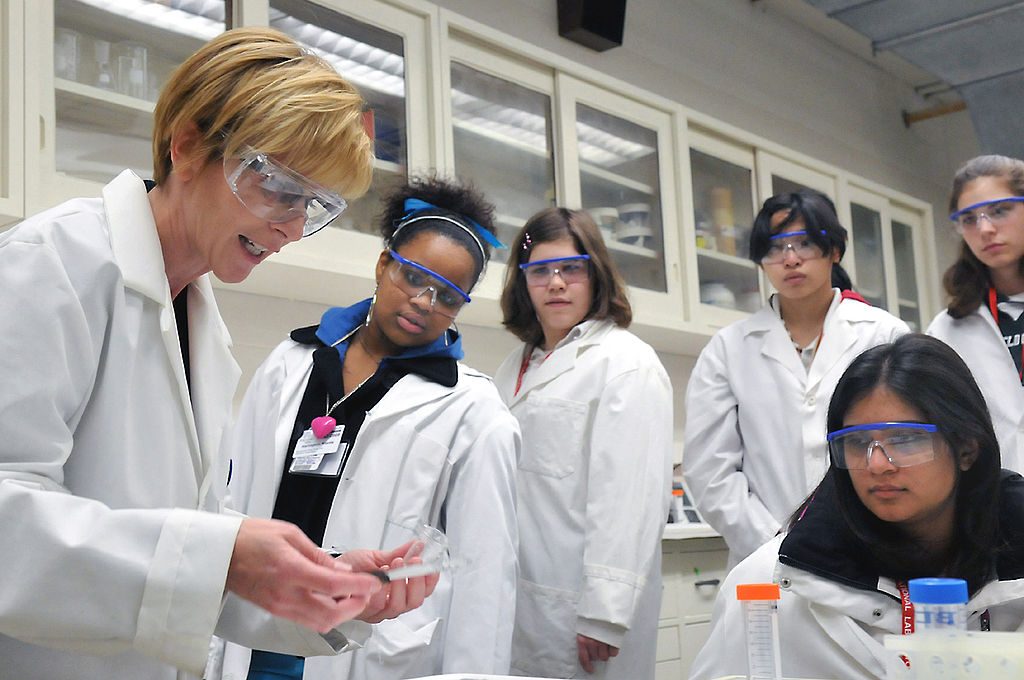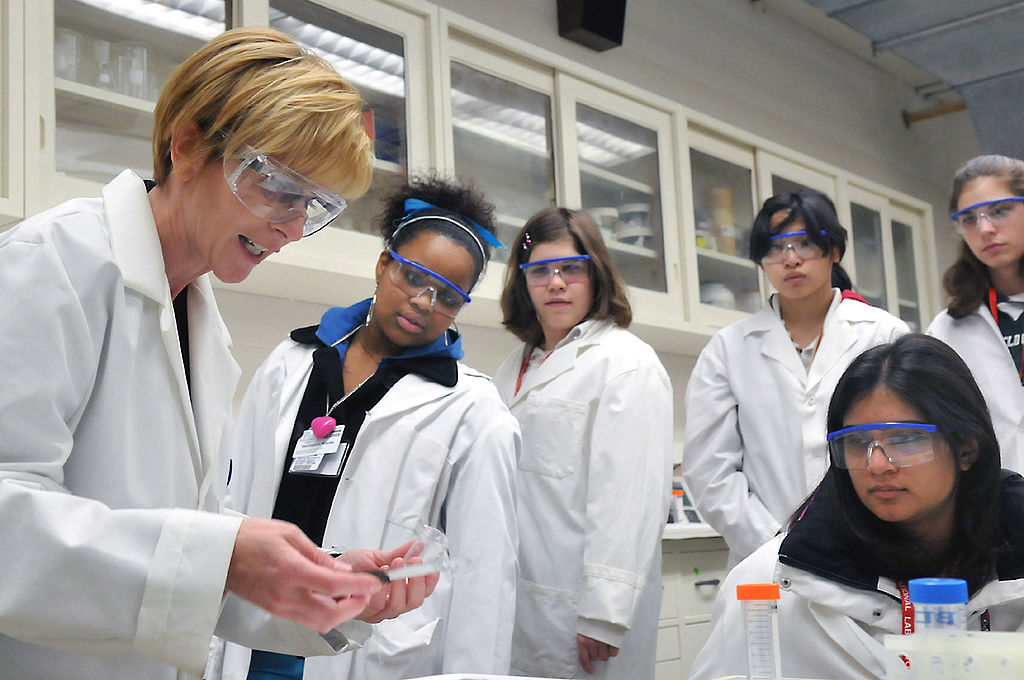More People in Science “Must Be Women”: Tackling Global Gender Inequality in STEM

The annual “Science Careers in Search of Women” event at Argonne National Laboratory in Illinois. Photo: Argonne National Laboratory/Wikimedia Commons
SAN FRANCISCO—Women have made great strides in the fields of science, technology, engineering and mathematics. But in non-Western countries, huge gender gaps remain in both representation and opportunity.
That reality drove a vigorous discussion during a special luncheon sponsored by 23andMe and Johnson & Johnson Innovation on 27 October at the World Conference of Science Journalists 2017.
Three prominent international female leaders in STEM shared their perspectives on who will—and should—do science in the 21st century. Women will only make more progress in science if their nations recognize them as equals and support them with opportunities, they said.
The next generation of scientists “must be women—and black people have to be a part of that,” said Naledi Pandor, South Africa’s Minister of Science and Technology. Pandor is working toward this goal in South Africa in several ways, such as providing research and educational grants targeted at women at all education levels.
A cascading effect against women
A big issue for her country and for the world, said Pandor, is the lack of awareness of women in science. “If all the science Nobel prizes are won by men, you might begin to ask questions about what’s going on,” she said. Most of the established and tenured researchers in many parts of the world are men, she noted, which has a cascading effect: “Males are good at seeing each other, and not very good at seeing women.”
The challenges facing potential women scientists in Japan are mainly cultural, said Miyoko O. Watanabe, deputy executive director of the Japan Science and Technology Agency and vice president of the Science Council of Japan. Women play many leadership roles in Japan, but not in the sciences, she said. Opportunities for female leaders in the STEM fields are not common—and are not often sought out. Young girls growing up in traditional Japanese families are not encouraged to explore these fields.
Watanabe agreed with Pandor that increasing awareness of female scientists in their countries is necessary not only for gender equality, but also to inspire young women to enter the STEM fields. Watanabe encouraged the citizens of Japan to “promote female scientists more and more.”
The need for mentorship
Science must appeal to more women in all countries for one clear reason, said Her Royal Highness Princess Sumaya bint El Hassan of Jordan: It is “the key to peace, health, and prosperity… around the world.”
But women don’t have equal chances to perform science at a high level, she concurred. The secret to successfully tackling this challenge, said El Hassan, is mentorship: “Mentorship is the golden thread of innovation that helps create and sustain a vibrant science culture.”
All three leaders spoke of their dissatisfaction at the number of successful scientists—particularly females—who leave their home countries to perform their research in the U.S. and elsewhere, where financial and institutional support is deeper. They are working to change that by advocating and promoting STEM activities for all genders and races within their countries and around the world.
El Hassan ended the session by challenging science journalists to write “stories over borders, through time zones, and across innovations. Science has a home wherever humans live.”
—
Kimberly Hickok is a freelance writer and graduate student in the Science Communication Program at UC Santa Cruz. Find her stories at www.kimberlydhickok.com and follow her on Twitter @kimdhickok.

